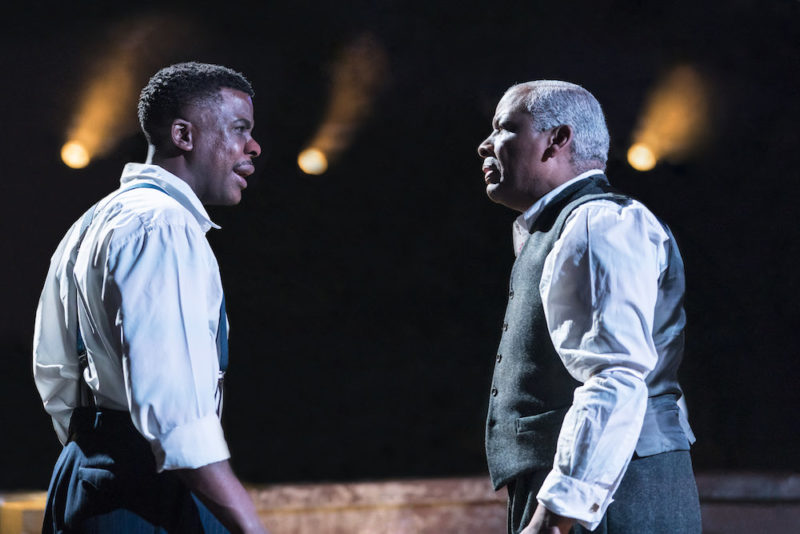There’s a reason why so many theatre productions are obsessed with the classics. It’s because the source material has proven itself to be a crowd pleasing surefire hit, which has probably won an award or two in the process. Therefore, they become rich pickings for theatre producers as they give fresh perspective to an aged old text. In Death of a Salesman you have such a magical classic, and in Royal Exchange – with Sarah Frankcom at the helm – you have producers looking to cast the same spell over Manchester’s theatregoers.
Arthur Miller’s Death of a Salesman is an American gold standard when it comes to theatre. Pulitzer Prize material, it won the Tony Award when it was first premiered in 1949, and three of its subsequent four revivals on Broadway have all gone on to win Tony Awards for Best Revival. That is the calibre of classic we are talking about.
At its centre is the story of Willy Loman, who has worked tirelessly for 30 years for his family and to own his own home. Loman reaches a pivotal point in his life where he begins to question the past and his own future, both begin to blur his actions in the present with serious ramifications. It’s a story that resonates with ordinary Americans, who can identify with a life’s embroiled in toil and hard work in the pursuit of bettering oneself.
A good script is a good script is a good script!
Of course you’d have to be a real dunce to make a hash of that story and thankfully in Sarah Frankcom we have anything but a dunce. Fresh from winning Best Director at the 2018 UK Theatre Awards for Our Town, Frankcom deploys her usual finesse to an oft told tale, bringing an illumination to the dark story that radiates through every facet of this production, from set design to the phenomenal acting on stage.
Let us begin with that set because it’s a stupefying introduction to the play without an actor taking his or her place in that famous setting. Designed by Leslie Travers it is what I can only describe as a topsy turvy minimalistic inspired forest of a set. The stage adorns a simple table with chairs. And that’s it save for the greenery shrubbery hanging overhead in all it’s horticultural glory. It is captivating – right from the get go.
The sparse set underneath that green magnificence should be an indicator as to where Francom has devoted her attention in depicting Miller’s classic. The casting is key to the success of this staging and getting that right that allows Miller’s classical familial tensions to dominate proceedings. Don Warrington is cast in the pivotal role of Willy Loman, whilst Ashley Zhangazha – also fresh from being named as winner of the Best Performance in a Musical – plays his son Biff. Maureen Beattie playing Willy’s wife and Buom Tihngang as his son complete the Loman family.
It’s not rocket science to suggest that the success of this play hinges on Warrington being able to portray the troubled machinations of man worn down by having spent 30 years on the road and wondering if it had all been worthwhile. Moreover, that Zhangazha can provide the perfect foil to Warrington’s troubled spirit and who is his equally torn offspring wrestling with his own demons.
And they more than rise to the occasion.
Both give commanding performances, as do Beattie and Tihngang, but no more so when all four are called upon to ratchet up their emotions in key scenes, which has them exposing their souls. The sparks that fly when the principal characters clash in their roles are incendiary and have the audience on tenterhooks.
Once again the Royal Exchange is more than just a setting. It’s unique features allow us to get up close and personal with this production. The performances of Warrington and his fellow cast members are allowed to envelope the watching galleries and so become totally immersed in the story.
Verdict: A stunning adaptation of Arthur Miller’s classic tale of a beleaguered man, who after 30 years on the road finally reaches breaking point. A stupefying set, clever direction and electrifying performances makes this a must see production.[usr 4 text=”false”]
